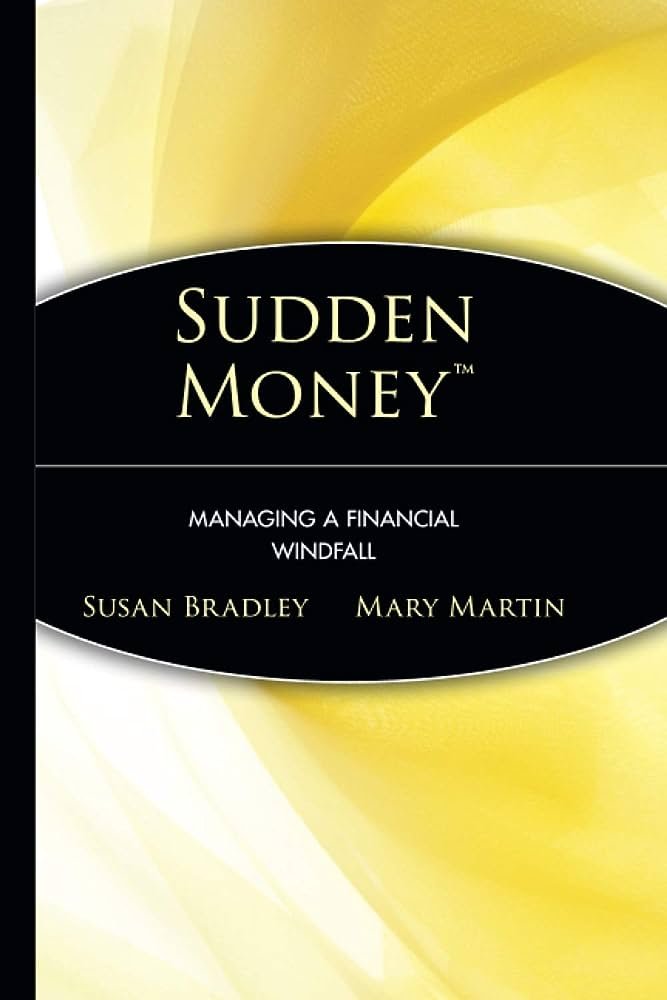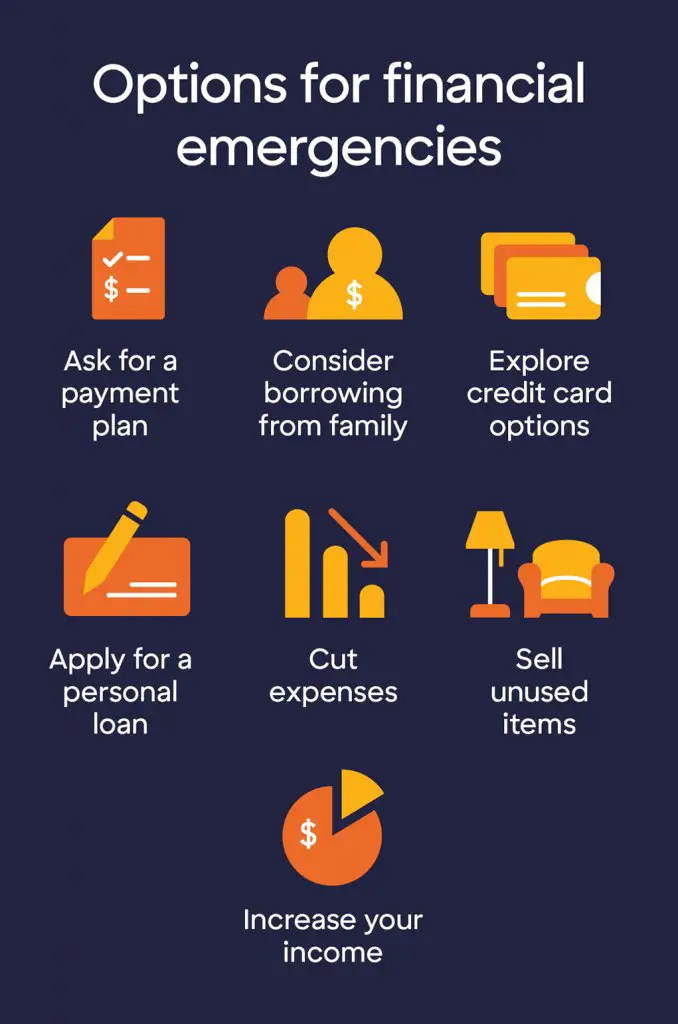A financial windfall can be both exciting and overwhelming. Suddenly coming into a large sum of money can be a dream come true, but without proper management, it can quickly turn into a nightmare. So, what is a financial windfall and how to manage it? In this blog article, we will explore the meaning of a financial windfall and provide practical tips on how to effectively handle this fortunate turn of events. From setting clear goals to seeking professional advice, you’ll find the guidance you need to navigate this unexpected blessing and ensure a prosperous future. Let’s dive in!
What is a Financial Windfall and How to Manage It
A financial windfall is an unexpected but significant amount of money that comes to an individual or a household. It could be in the form of an inheritance, lottery winnings, a large bonus, or even a financial settlement. While receiving a windfall can be exciting, it’s important to have a plan in place to manage it effectively. In this article, we will explore what a financial windfall is and provide tips on how to handle it wisely.
Understanding Financial Windfalls
A financial windfall can be a life-changing event. It presents a unique opportunity to improve one’s financial situation, achieve long-term goals, or even pursue dreams that were previously out of reach. However, it’s crucial to approach it with caution and consider the potential impact it can have on personal finances.
When a windfall is received, it’s important to take a step back and evaluate the situation before making any hasty decisions. Here are a few key aspects to understand about financial windfalls:
Types of Financial Windfalls
Financial windfalls can come in various forms, and it’s essential to understand the nature of the windfall to determine the best course of action. Here are some common types of windfalls:
- Inheritance: Receiving a significant sum of money or assets from a deceased family member or loved one.
- Lottery or Gambling Winnings: Winning a large sum of money through games of chance.
- Insurance Settlement: Receiving a financial settlement due to an insurance claim.
- Legal Settlement: Receiving compensation from a legal settlement, such as a personal injury case or lawsuit.
- Stock Options or Investments: Profiting from investments or stock options that yield substantial returns.
- Business Sale: Selling a business or receiving a substantial payout from the sale of a business.
The Emotional Impact
While a windfall can bring excitement and joy, it can also create emotional challenges. Sudden wealth can cause stress, anxiety, and even strain relationships. It’s important to recognize and manage these emotions to make sound financial decisions. Seeking professional guidance from financial advisors or counselors can help navigate the emotional impact of a windfall.
Managing a Financial Windfall
Managing a financial windfall requires careful planning and consideration. Here are some essential steps to help effectively manage the newfound wealth:
1. Assess your Current Financial Situation
Before making any decisions, it’s crucial to evaluate your existing financial position. This includes understanding your debt obligations, current savings, and overall financial goals. By assessing your financial standing, you can make informed choices about how best to allocate the windfall.
2. Set Clear Financial Goals
Once you have a clear understanding of your financial situation, define your short-term and long-term goals. These goals may include paying off debts, building an emergency fund, saving for retirement, investing in education, or purchasing a new home. Setting specific goals provides direction and helps make strategic decisions regarding the windfall.
3. Seek Professional Guidance
Managing a windfall can be complicated, especially if you don’t have experience handling large sums of money. Consider consulting with a team of professionals, including financial advisors, accountants, and estate planners. They can provide expert advice tailored to your unique circumstances and help you make informed decisions.
4. Create a Financial Plan
With the guidance of professionals, create a comprehensive financial plan that aligns with your goals and values. This plan should outline how you intend to use the windfall to improve your financial well-being over the long term. It may include strategies for investing, tax planning, charitable giving, and estate planning.
5. Pay off Debts and Build an Emergency Fund
If you have outstanding debts, consider using a portion of the windfall to pay them off. Start with high-interest debts, such as credit cards or personal loans. Once your debts are under control, allocate a portion of the windfall to establish or bolster your emergency fund. Aim to save at least three to six months’ worth of living expenses to provide a safety net in case of unexpected financial challenges.
6. Diversify Investments
If you choose to invest a portion of the windfall, it’s important to diversify your investments. Avoid putting all your money into a single investment or asset class. Instead, consider a mix of stocks, bonds, real estate, and other investment vehicles. Diversification helps mitigate risk and can lead to more stable long-term growth.
7. Resist the Urge for Splurges
While it may be tempting to indulge in extravagant purchases or experiences, it’s essential to resist the urge for immediate splurges. Impulsive spending can deplete the windfall quickly and may not align with your long-term financial goals. Instead, practice delayed gratification and focus on using the money wisely to secure your financial future.
8. Remain Tax Compliant
Large windfalls often come with tax implications. Consult with a tax professional to understand the tax obligations associated with your windfall. Depending on the type of windfall and your location, you may need to pay taxes on inheritance, capital gains, or other forms of income. By staying tax compliant, you can avoid potential penalties or legal issues in the future.
9. Review and Update Estate Planning
If your windfall includes a significant amount of assets or wealth, it’s important to review and update your estate planning documents. Work with an estate planning attorney to ensure your will, trust, and other estate planning documents reflect your new financial situation and align with your intentions for the future.
10. Practice Philanthropy
Consider giving back to your community or supporting causes that are close to your heart. Philanthropy can be a rewarding way to make a positive impact in the world while also providing potential tax benefits. Research charitable organizations and explore ways to contribute to causes that align with your values and goals.
Receiving a financial windfall can be a life-changing event. With careful planning, smart decision-making, and professional guidance, you can make the most of a windfall to secure your financial future, achieve your goals, and leave a lasting legacy. Remember to prioritize your financial well-being, resist impulsive spending, and stay focused on your long-term objectives. By managing your windfall wisely, you can enjoy the benefits while safeguarding your financial security.
How to Handle a Sudden Financial Windfall
Frequently Asked Questions
Frequently Asked Questions (FAQs)
What is a financial windfall and how to manage it?
A financial windfall refers to a large sum of money that is unexpectedly received, such as an inheritance, lottery winnings, or a significant bonus. Managing a financial windfall responsibly is crucial to ensure long-term financial security.
How should I handle a financial windfall?
Handling a financial windfall requires careful planning and consideration. Here are some steps to help you manage it effectively:
1. What are the first steps to take after receiving a financial windfall?
Immediately after receiving a windfall, it’s important to resist the urge to make impulsive decisions. Take the following steps:
– Keep the money in a safe place, such as a bank account.
– Consult with a financial advisor or planner to assess your financial situation and goals.
– Create a budget to determine how the windfall can be best utilized.
2. How can I protect my windfall from unnecessary expenses or loss?
To protect your windfall, consider the following steps:
– Avoid sharing your newfound wealth with everyone you know to prevent opportunistic individuals from taking advantage.
– Be cautious of investment opportunities that promise quick, high returns, as they may be scams.
– Create an emergency fund to cover unexpected expenses and protect your windfall from being depleted.
3. Should I pay off debts or invest my windfall?
Deciding whether to pay off debts or invest your windfall depends on your individual circumstances. Consider the following factors:
– High-interest debts, such as credit card debt, should be prioritized for repayment.
– Evaluate your current investments and consult with a financial advisor to determine the best investment strategy for your windfall.
– Consider diversifying your investments to reduce risk and maximize potential returns.
4. How can I make the most of my financial windfall?
To make the most of your windfall:
– Set clear financial goals and develop a long-term plan for your money.
– Consider investing in assets that will appreciate over time, such as real estate or stocks.
– Prioritize saving for retirement and other long-term financial objectives.
5. Should I seek professional financial advice for managing my windfall?
Yes, seeking professional financial advice is highly recommended when managing a windfall. A financial advisor can help you navigate complex investment options, create a personalized financial plan, and ensure your money is being effectively managed for long-term financial security.
6. What are common mistakes to avoid when managing a financial windfall?
Avoid the following common mistakes:
– Impulsive spending on unnecessary luxury items.
– Failing to pay off high-interest debts.
– Not diversifying investments and putting all the money into a single investment option.
– Neglecting to create an emergency fund.
7. How can I maintain financial discipline after receiving a windfall?
Maintaining financial discipline is crucial for long-term financial security. Here are a few ways to stay disciplined:
– Stick to your budget and financial plan.
– Avoid making large, impulsive purchases without careful consideration.
– Regularly review your financial goals and progress.
– Continuously educate yourself about personal finance to make informed decisions.
8. What are some long-term benefits of managing a financial windfall wisely?
Managing a financial windfall wisely can provide several long-term benefits, including:
– Increased financial security and stability.
– The ability to achieve long-term financial goals, such as early retirement or purchasing a home.
– Reduced financial stress and worry.
– The potential to leave a lasting financial legacy for future generations.
Final Thoughts
Financial windfalls can be unexpected blessings that bring sudden opportunities and possibilities into our lives. However, handling them wisely is crucial to ensure long-term financial stability. To manage a financial windfall effectively, it is essential to devise a clear plan. Start by identifying immediate financial obligations, such as paying off debts or setting up an emergency fund. Then, consider long-term financial goals, such as investing in assets or saving for retirement. Seeking professional advice is also recommended to make informed decisions and maximize the benefits of the windfall. Ultimately, by understanding what a financial windfall is and taking proactive steps to manage it, individuals can secure a stronger financial future.


